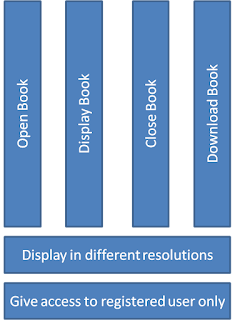Around the world, over the years...
I would like to make it clear that my intentions are to advocate software engineering through this blog. Having worked for about 3 years under the title of 'Software Engineer', I realized that it is a little more than just programming. However what I did was mostly programming. On the other hand, I have been working since 5 months using the title "Web Programmer" while most of what I was doing should be considered software engineering. I have been involved in planning, requirements elicitation, process engineering, architecture, data migration, database design, user interface design, and also programming (in a language I had very little prior experience in: remember learnability!). I smirk at the irony. Around the world, over the years... It has been over two months since my last update. Yeah, I know that I say that every time I post something new. This time, I decided that I would rest it out and see what other bloggers have to say about software engineeri

